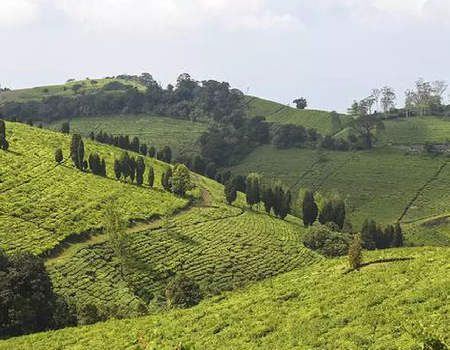
Please Share your Email if you Wish to Receive the Golden Tips & Tales Newsletter from History of Ceylon Tea Website

Iran-Sri Lanka tea-crude oil barter agreement will likely affect India’s declining tea exports.
UPASI (United Planters Association of Southern India ) sources said, the agreement between Iran and Sri Lanka is to procure orthodox leaves where the island nation is a major producer worth $5 million for 48 months at a value of around $250 million. The tea-for-oil barter arrangement would help Sri Lanka emerge as a major supplier for Iran, the sources said.
A top official in the Sri Lankan tea industry, who did not wish to be identified, told businessline that the barter arrangement is purely an avenue through which Sri Lanka will be able to settle a $250 million debt it owes to Iran for fuel purchases made in 2012. It will be paid over 48 months with tea shipments worth $5 million per month. A memorandum of understand (MoU) was signed in December 2021, but its implementation began in August 2023. It will be completed by September 2027, he said.
Upasi sources said, India’s tea shipments to Iran have come down significantly from 54.45 million kg during 2019 to around 6 million kg in 2023 (5.16 m kg Jan-Nov 2023) due to the payment crisis. Correspondingly, the Indian share in the Iranian market has declined from 21 per cent in 2019 to 2.5 per cent in 2023.
UPASI officials have called for the smoothing of trade pathways and boosting market access by integrating trade concerns in government-level dialogues with key export destinations, such as Iran and other destinations to open new market opportunities.
The Indian tea exports during Jan-Nov 2023 was lower by 2.46 million kg at 207.14 million kg mainly on account of lower intake by some important destinations such as Iran, which reported lower imports by (-) 15.7 million kg, Russian Federation (-) 10.03 million kg and UAE (-) 5.5 million kg.
Meanwhile, Kochi auctions witnessed good enquiries and active participation of buyers from CIS countries, Middle East and Tunisia which led to 94 per cent sales of orthodox leaves out of the offered quantities of 1,81,773 kg in sale. High-priced and secondary grades witnessed a good procurement by Iraq buyers leading to ₹10-20 increase.
The closing down of tea estates in the North, due to winter, has forced North Indian buyers to look at South Indian auctions for procurement. This buying trend from the North, will continue for some more time when the plantations start operations from March-April, traders said.
Comments
(In keeping with the objectives of this website, all COMMENTS must be made in the spirit of contributing to the history of this estate, planter or person i.e. names, dates & anecdotes. Critical evaluations or adverse comments of any sort are not acceptable and will be deleted without notice – read full Comments Policy here)